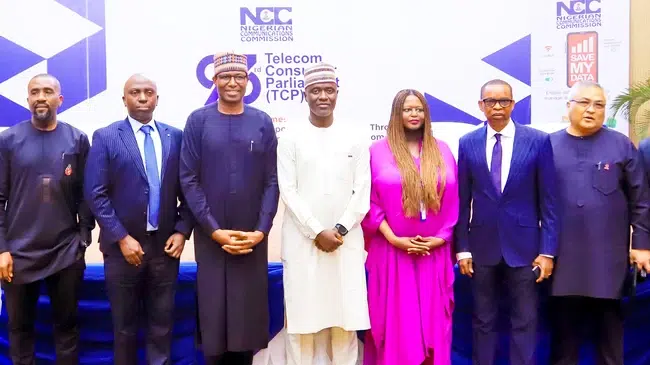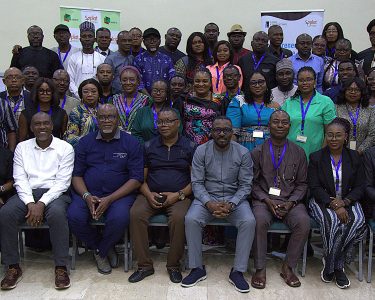After several many social media campaigns on how to avoid repeated fast mobile internet data depletion, the Nigerian Communications Commission (NCC), again took the pains of having a one-on-one conversation with consumers on how to conserve their data subscription.
The Commission also educated consumers on how smartphones features can play a smart one on them by even depleting their urging them to take time study their smart device features.
Speaking at the 93rd Telecoms Consumer Parliament, themed “Optimizing Data Experience: Empowering Consumers through Awareness and Transparency in a Consumer-Centric Telecom Industry”, the Executive Vice Chairman of the NCC, Dr. Aminu Maida recounts the worries of the consumers, stating that many consumers feel their data depletes faster than expected, noting however that “Nigeria isn’t alone in this; other countries, like Eswatini, are also working to address similar consumer concerns about data usage.”
According to him, with the advent of 4G and 5G, as well as devices with ultra-high-definition screens, data consumption has naturally increased explaining that “while viewing a photo on Instagram might have required only 100 kilobytes of data five years ago, today, with advanced camera resolutions, a photo can consume between two to four megabytes when opened on Instagram.”
Recalling a tech report, he stated that “spending an hour on Instagram can set you off an average of 600 Megabytes of your data, while streaming platforms like YouTube would set you off by about 3.5 to 5.4 Gigabytes per hour.”
Maida added: “Improved technologies go beyond their purchase cost to our pockets, they also come at a cost to data. Because they have better screen resolutions, they consume higher quality media that consumes more data.”
while also making reference to another report, DataReportal, the NCC boss said that the world’s internet users are spending less time watching television; the average daily television viewing has fallen by over 8% in the past one year, saying that viewers are now spending more time on their telephones, tablets, and smart TVs streaming programmes that they would previously have watched on broadcast television.
But respite is on the way for the consumers, as the NCC is in collaboration with major operators, to launch a Joint Industry Campaign on Consumer Awareness on Smarter Data Usage media campaign, spanning radio, television, newspapers, and SMS, aims to educate consumers on effective data management.
“Many smartphone users may not know that their devices can track data usage and allow them to set limits on the amount of data they want to use”, he said adding that “smartphones, even when idle, often run background applications like automatic updates and location services, which consume data. Additionally, high-definition streaming services like Netflix consume substantial data-about three gigabytes per hour in high definition, or seven gigabytes in ultra-high definition.”
Maida disclosed that to address tariff complexity, NCC issued a Guidance on Tariff Simplification, requiring operators to provide clear, accessible information on data plans and pricing stressing that this transparency will empower consumers to make better-informed decisions about their data usage and billing.
He also revealed that the NCC’s data analysis indicated that quality service delivery is not solely the responsibility of Mobile Network Operators; but requires collaboration across the value chain saying that “key stakeholders, such as TowerCos, which provide power and shared infrastructure, as well as those providing essential backhaul services, whether by fibre, microwave or even satellite, connecting base stations to the core networks of MNOs, all play crucial roles in ensuring high-quality telecom services.”
The NCC assured consumers that operators will soon implement this guidance, presenting consumers with tables detailing their tariff plans, billing rates on each plan, and all terms and conditions related to the tariff plans they are on adding that the Commission is committed to transparency and accountability within the sector.
He also said that the the Commission is finalizing her Major Incident Reporting Guidelines, which will require operators to inform consumers of major incidents impacting their networks, with these reports also accessible on our website.





